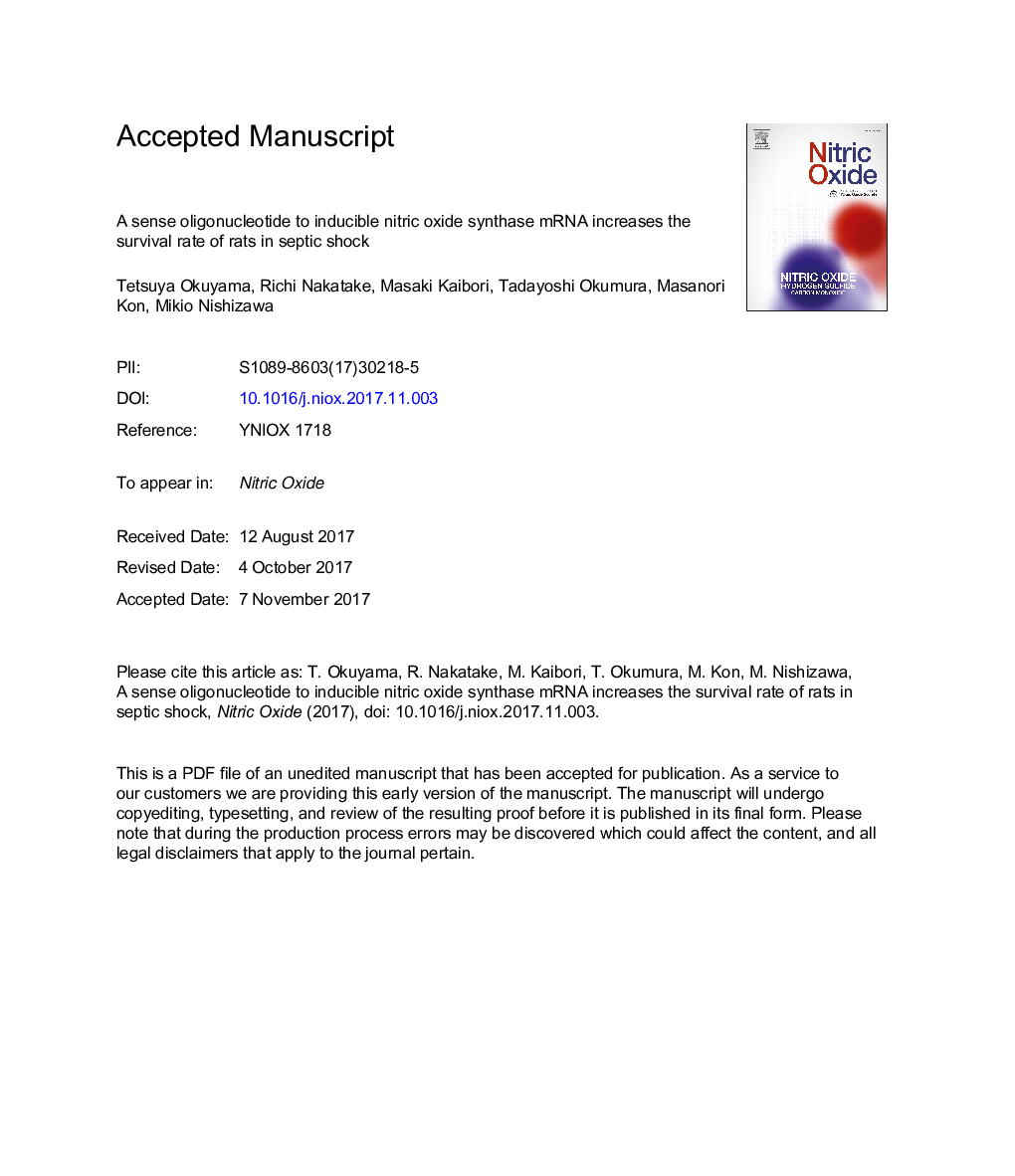| Article ID | Journal | Published Year | Pages | File Type |
|---|---|---|---|---|
| 8344735 | Nitric Oxide | 2018 | 45 Pages |
Abstract
Natural antisense transcripts (asRNAs) that do not encode proteins are transcribed from rat, mouse, and human genes, encoding inducible nitric oxide synthase (iNOS), which catalyzes the production of the inflammatory mediator nitric oxide (NO). In septic shock, NO is excessively produced in hepatocytes and macrophages. The iNOS asRNA interacts with and stabilizes iNOS mRNA. We found that single-stranded 'sense' oligonucleotides corresponding to the iNOS mRNA sequence reduced iNOS mRNA levels by interfering with the mRNA-asRNA interactions in rat hepatocytes. The iNOS sense oligonucleotides that were substituted with phosphorothioate bonds and locked nucleic acids efficiently decreased the levels of iNOS mRNA and iNOS protein. In this study, the gene expression patterns in the livers of two endotoxemia model rats with acute liver failure were compared. Next, we optimized the sequence and modification of the iNOS sense oligonucleotides in interleukin 1β-treated rat hepatocytes. When a sense oligonucleotide was simultaneously administered with d-galactosamine and bacterial lipopolysaccharide (LPS) to rats, their survival rate significantly increased compared to the rats administered d-galactosamine and LPS alone. In the livers of the sense oligonucleotide-administered rats, apoptosis in the hepatocytes markedly decreased. These results suggest that natural antisense transcript-targeted regulation technology using iNOS sense oligonucleotides may be used to treat human inflammatory diseases, such as sepsis and septic shock.
Keywords
asRNAquantitative reverse transcription–polymerase chain reactionAntisense transcriptsGalNLNAiNOSqRT-PCRLPS3′ untranslated region3′UTRd-GalactosamineNon-coding RNALocked Nucleic AcidEndotoxemiainterleukintumor necrosis factor αTUNELinducible nitric oxide synthaseSepsiselongation factor 1αTNF-αlipopolysaccharideLiver failureNitric oxide
Related Topics
Life Sciences
Biochemistry, Genetics and Molecular Biology
Biochemistry
Authors
Tetsuya Okuyama, Richi Nakatake, Masaki Kaibori, Tadayoshi Okumura, Masanori Kon, Mikio Nishizawa,
